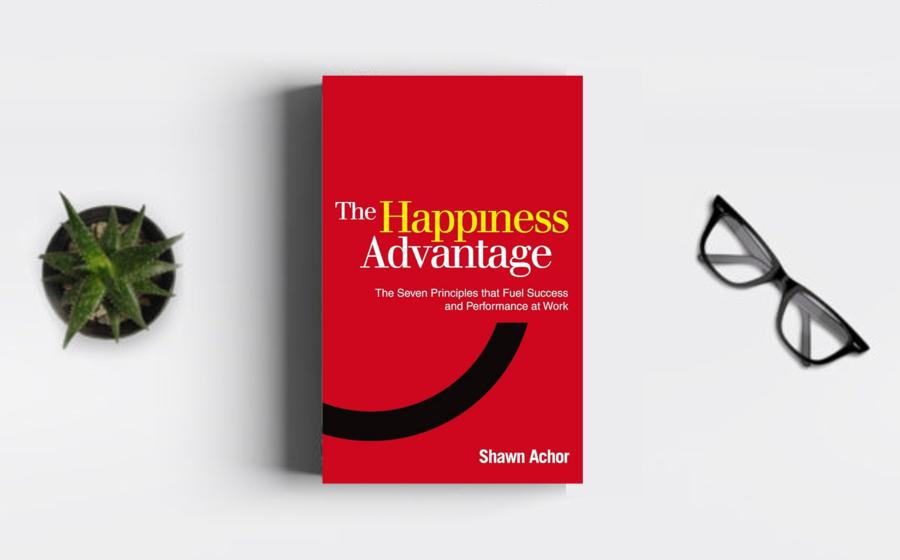"The Happiness Advantage" by Shawn Achor is a
compelling exploration of the relationship between
happiness and success, challenging the traditional
belief that achievement leads to happiness. Achor, a
positive psychology expert and Harvard lecturer,
presents a wealth of research and practical insights to
demonstrate that cultivating a positive mindset can
actually enhance productivity, creativity, and overall
well-being.
The central premise of the book is
that happiness is not merely a consequence of success
but a precursor to it. Achor introduces the concept of
the happiness advantage, asserting that individuals who
maintain a positive outlook are more likely to achieve
success in various aspects of their lives. Drawing on
scientific studies, anecdotes, and real-world examples,
the author builds a compelling case for the
transformative power of positive psychology.
One
of the key themes in "The Happiness Advantage" is the
idea that happiness is a choice and a skill that can be
developed. Achor challenges the common notion that
external circumstances determine one's happiness,
arguing that individuals have the ability to shape their
own well-being through intentional practices and mindset
shifts. This empowering message inspires readers to take
control of their happiness and, by extension, their
success.
The book delves into the concept of the
Tetris Effect, a phenomenon named after the popular
video game. Achor explains how our brains have a
tendency to become pattern-seeking, and by training
ourselves to focus on positive patterns, we can reshape
our perception of the world. This shift in perspective
allows individuals to capitalize on opportunities,
overcome challenges, and ultimately improve their
overall happiness and success.
Achor introduces
the concept of the Fulcrum and the Lever, emphasizing
the role of mindset in shaping our experiences. The
Fulcrum represents our mindset, while the Lever
represents our potential for positive change. By
consciously choosing a positive mindset, individuals can
leverage their ability to adapt, learn, and grow,
thereby enhancing their performance and well-being. This
understanding prompts readers to assess and adjust their
own mindsets to unlock their potential for happiness and
success.
"The Happiness Advantage" explores the
ripple effect of positivity in various domains,
including work, education, and relationships. Achor
introduces the concept of the Ripple Effect,
illustrating how positive changes in one area of life
can lead to cascading improvements in others. This
interconnectedness underscores the idea that happiness
is not confined to one aspect of life but has the power
to influence and elevate multiple facets.
The
book also addresses the common misconception that
success requires sacrificing happiness. Achor challenges
the belief that hard work and achievement must come at
the expense of well-being. Instead, he argues that a
positive mindset fuels motivation, creativity, and
resilience, ultimately contributing to greater success.
This perspective challenges the cultural narrative of
the "success at all costs" mentality and inspires
individuals to prioritize their happiness on the path to
achievement.
Moreover, Achor introduces the
concept of the Zorro Circle, named after the iconic
character. The Zorro Circle represents the idea of
focusing on small, manageable goals within a
circumscribed area before expanding one's efforts. This
concept encourages readers to start with achievable
changes in their immediate surroundings, gradually
expanding their circle of influence. The Zorro Circle
empowers individuals to take incremental steps toward
positive change, fostering a sense of agency and
progress.
The book provides practical strategies
for implementing positive habits and rituals into daily
life. Achor introduces the concept of the 20-Second
Rule, which suggests that making positive behaviors 20
seconds easier to start can lead to habit formation. By
reducing the activation energy required for positive
actions, individuals can create an environment that
facilitates the development of beneficial habits. These
actionable insights offer readers tangible ways to
integrate positivity into their routines.
Achor
explores the impact of social connections on happiness
and success, highlighting the importance of building
strong, positive relationships. The book introduces the
concept of Social Investment, emphasizing the value of
investing time and energy in nurturing meaningful
connections with others. The supportive networks
individuals cultivate contribute to their overall
well-being and success. This emphasis on social bonds
inspires readers to prioritize and strengthen their
relationships as a key component of their happiness
advantage.
In terms of inspiration, "The
Happiness Advantage" motivates readers by presenting a
wealth of evidence supporting the idea that happiness is
a powerful catalyst for success. Achor's engaging
writing style and relatable examples make the scientific
research accessible and applicable to a broad audience.
The book challenges conventional notions about the
relationship between happiness and achievement,
encouraging readers to reconsider their priorities and
invest in their well-being.
The narrative is
enriched by Achor's own experiences and anecdotes,
creating a sense of authenticity and relatability. By
sharing personal stories and struggles, Achor connects
with readers on a human level, illustrating that the
pursuit of happiness is a universal journey. This
relatability fosters a sense of encouragement and
reassurance, inspiring readers to embark on their own
paths toward greater positivity and success.
"The
Happiness Advantage" also addresses the role of stress
and resilience in the pursuit of happiness. Achor
acknowledges the inevitability of challenges and
setbacks but emphasizes the importance of building
resilience to navigate adversity. This perspective
reframes difficulties as opportunities for growth and
learning, inspiring readers to approach challenges with
a positive mindset and an unwavering belief in their
ability to overcome obstacles.
Furthermore, the
book challenges the cultural narrative that places
success as a prerequisite for happiness. Achor argues
that the formula for fulfillment is not success leading
to happiness but rather happiness leading to success.
This paradigm shift invites readers to reconsider their
approach to goal-setting and achievement, prompting them
to prioritize their well-being as a means of enhancing
their overall success.
"The Happiness Advantage" is a transformative guide that inspires individuals to recognize the profound connection between happiness and success. Shawn Achor's evidence-based insights, practical strategies, and engaging storytelling make the book accessible and applicable to a diverse audience. By challenging conventional beliefs and providing actionable steps.






